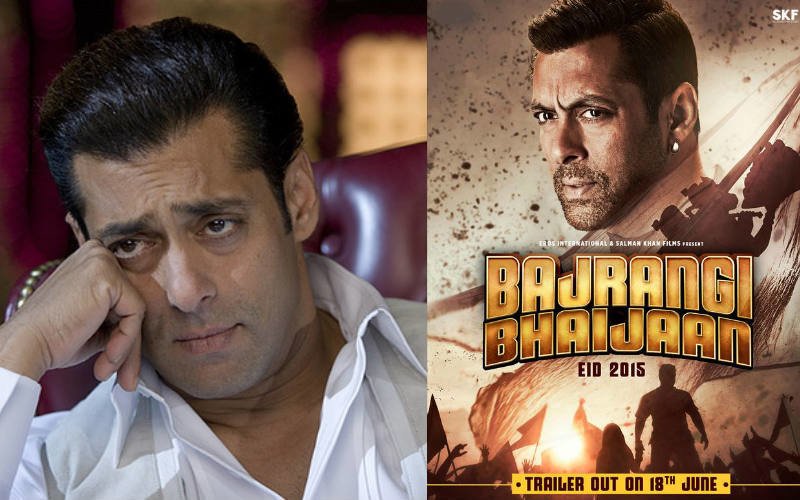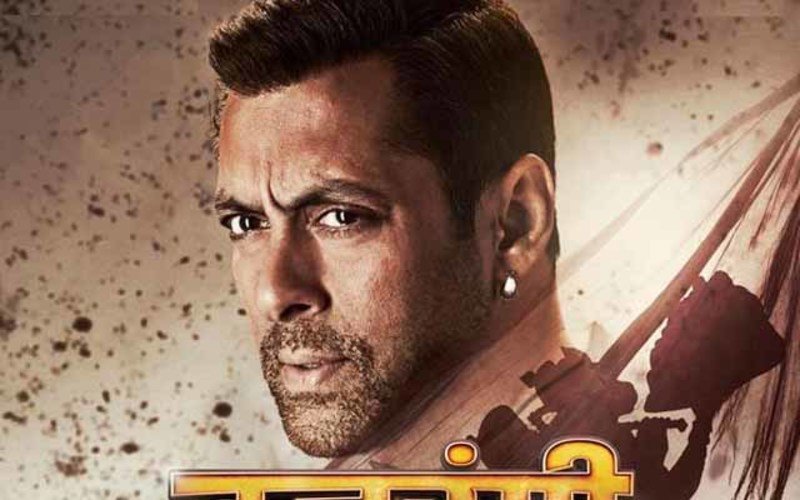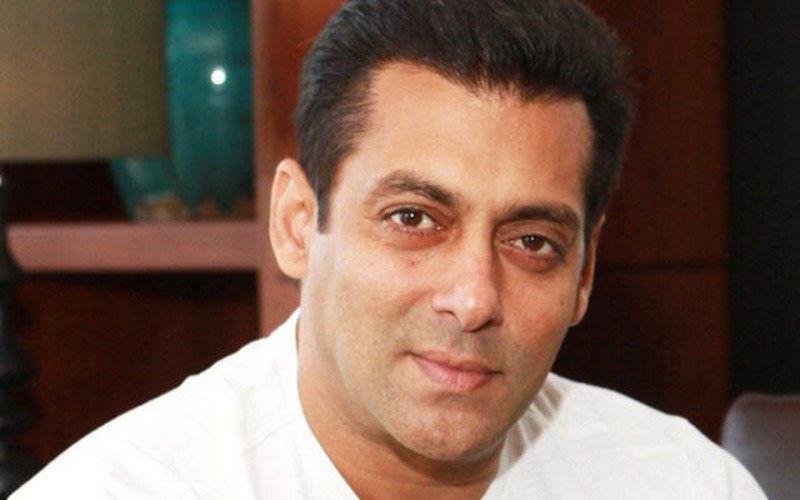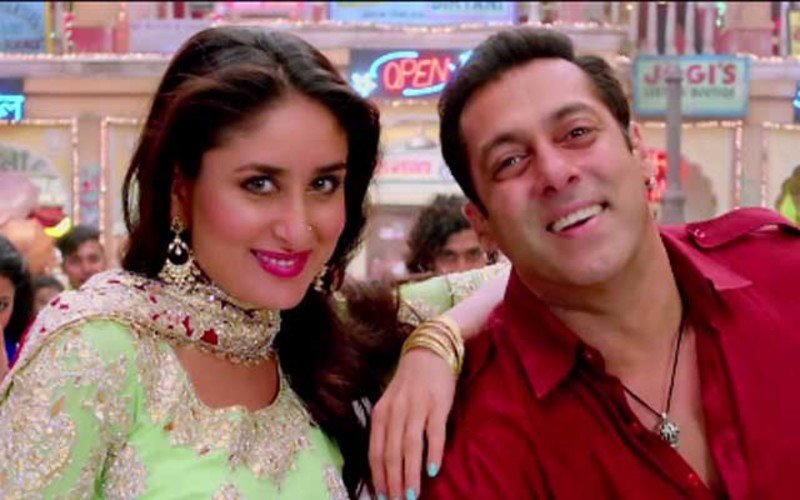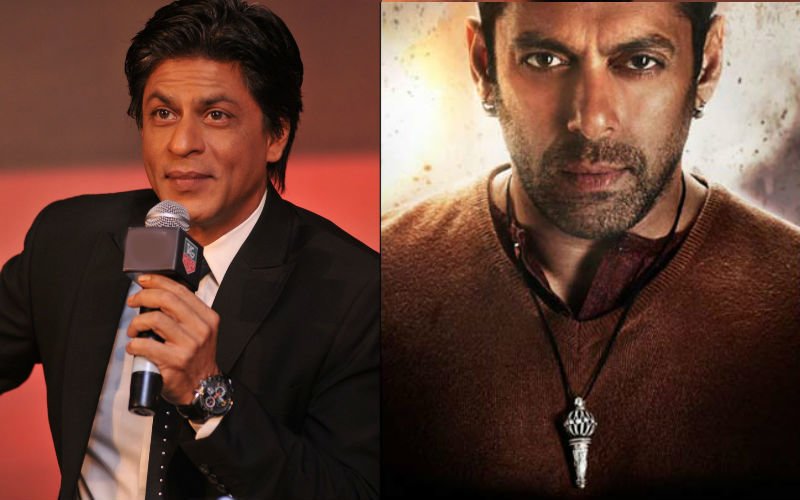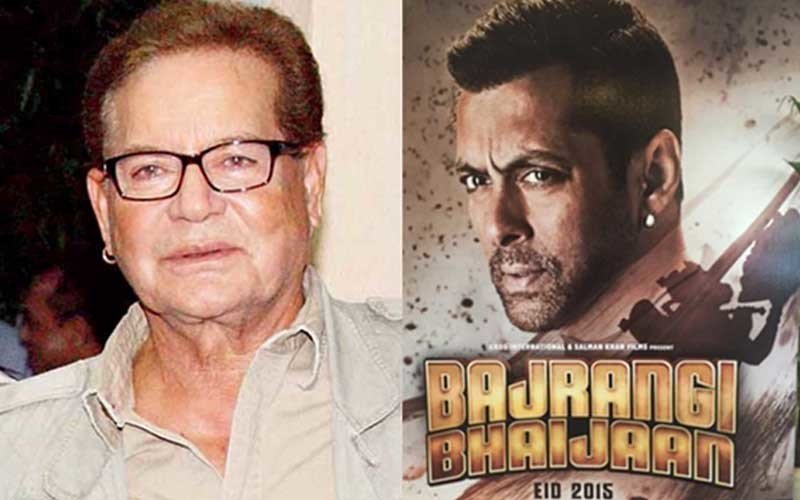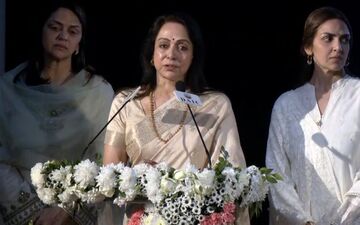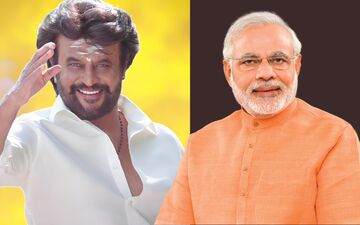Kabir Khan: "Bajrangi Happened Because Salman And I Put Our Differences Aside"
Here's the latest update from the world of Bollywood. We bet you wouldn't want to miss this. Read on for details... Kabir Khan in an exclusive chat with SpotboyE.com
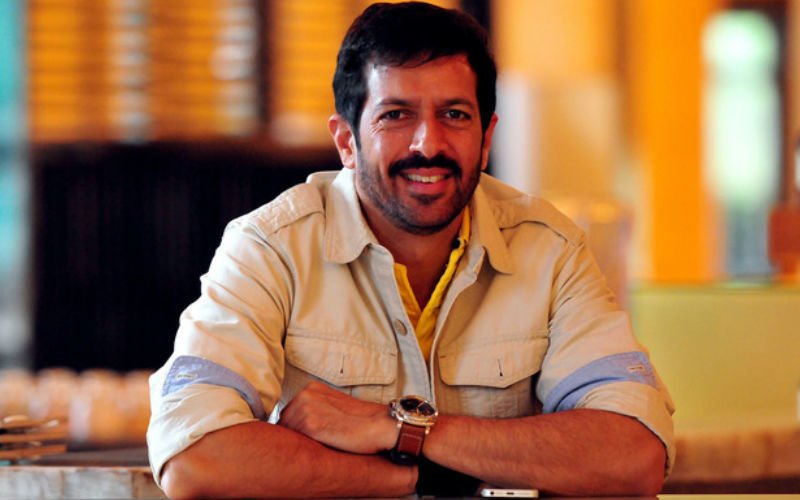
Bajrangi Bhaijaan looks like a film that addresses a serious topic with a sense of light-heartedness and humour. Has that been done to make the film more mainstream?
I feel humour is the best way to address something serious as it is the most profound way to talk about any issue. Also, with humour you can get away with a lot while still conveying what you set out to. That one line between Salman and Nawaz: Bajrang Bali madat karenge na, to which Nawaz says, Pakistan mein bhi? That one dialogue has so, so many layers that you can interpret it in multiple ways.
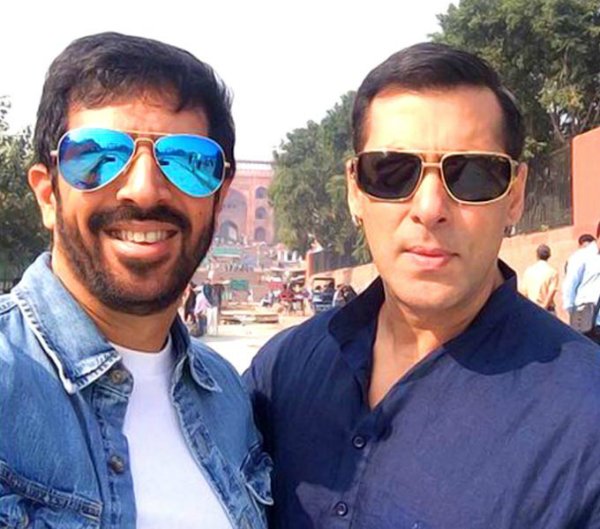
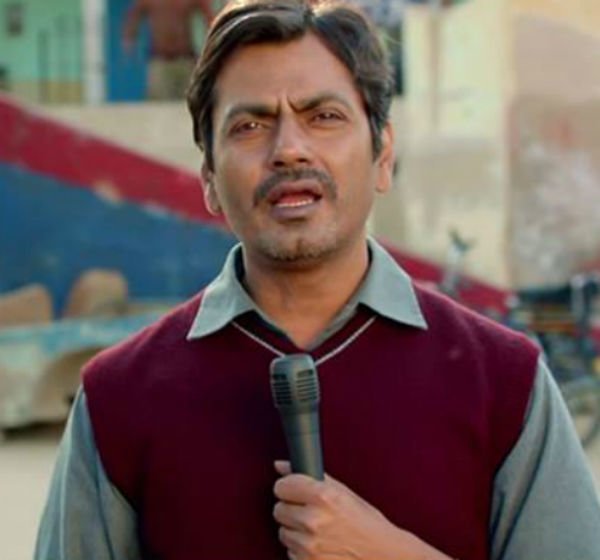
It definitely veers towards the dark. Would you say then that Bajrangi's humour is similar to Kabul Express than any of your other films?
Absolutely! The great thing is that this time it is a much bigger scale in terms of production and there is a big star who guarantees a lot more visibility to my film. One challenge that I am facing with Bajrangi is that it is a very difficult film to promote in the traditional Bollywood way. I don't think any trailer can do justice to the film's story as it's a journey which will leave you emotionally overwhelmed.
When you use humour to address a relatively serious issue, do you also not stand the risk of mocking it?
Yes! There's an extremely thin line and you need to tread carefully. The challenge is how to not trivialise and ridicule the issue. It is more difficult to be able to express the point with humour. It is much easier to articulate it in a normal way. But then it can get preachy and boring, something that you can escape if you get the humour right.
Rajkumar Hirani has managed to do that really well...
It's an exceptional triumph. That man is a genius. Look at Lagey Raho Munnabhai. It drives home the message with such wit and humour; you are hooked as a viewer.
Take us through the process of writing a Salman Khan film.
Salman, or no Salman... writing is an exceptionally painful, lonely and at the same time, fulfilling process. It is frustrating and enjoying almost simultaneously. Sometimes you end up liking a scene that you wrote but two days later, you go like, what the hell were you thinking! I always try and get a co-writer at a certain stage and then we start bouncing off ideas to one another every two days. So we create a situation and then write how the scenes will be executed, separately. Then it is junked and deliberated upon as a new perspective is established. So in that sense, writing a film is an extremely collaborative process.
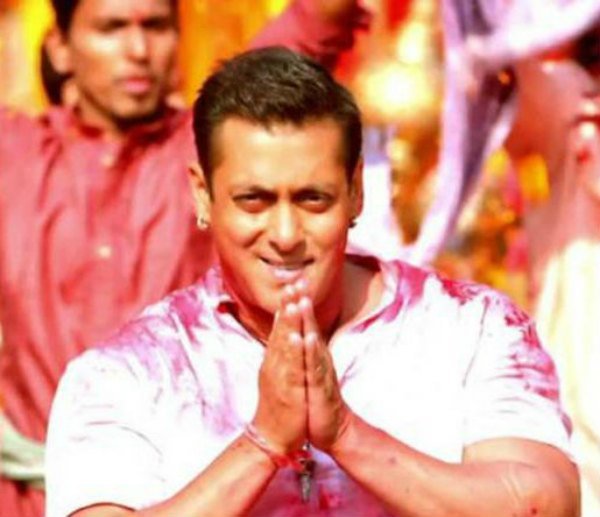
How strongly do you think your film stands if you take away Salman Khan's star power from it?
In Bajrangi, I have been very fortunate as I've been allowed to make a really sweet story and still had the opportunity to make it on the scale that it deserves. Add to it Salman Khan. He makes the film even bigger. Having said that, I think it is a fantastic story. But of course, nothing can beats what Salman brings on to the table. I was able to make the film only because Salman and I were finally on the same page.
You are implying that there was a tussle between the two of you during Ek Tha Tiger?
Yes, there was. In Ek Tha Tiger, there was a lot of give and take. It took a lot of time for us to see eye to eye, to see the film in the same way and to agree on things we had major differences on. I think that's the natural course in any collaboration. And I think it is important. I'd like discussion and debate as opposed to a brain-dead actor who doesn't have any interest at all.
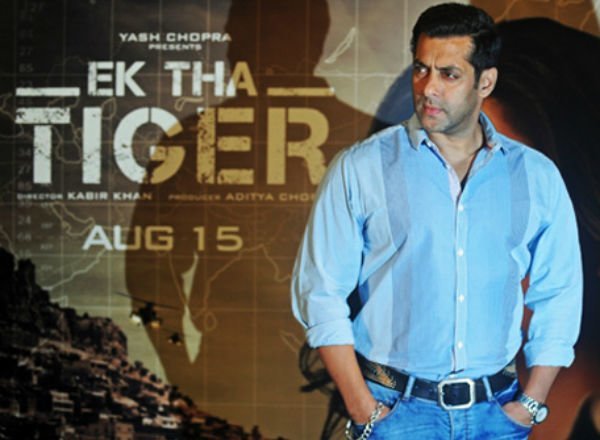
But how difficult it is to argue with a superstar like Salman who is known to have his way?
He has his suggestions and I may not agree with him or have another point of view. In Ek Tha Tiger we went through that. But towards the end, we saw each other's perspective.
But obviously you might have felt that the same tussles could crop up again?
Yes, but Bajrangi happened because Salman and I ended up on the same page when Tiger wrapped up - there is no compulsion for him to work with me, neither am I obliged to work with him. We became great friends and the moment Bajrangi developed in my head, I went to him and he loved it. One thing I respect about Salman is that he never said anything because of the star that he is. It was always driven by the urge to make the film better. He could have thrown his superstardom at the director - a lot of stars do that. But he didn't--- and that made me respect him.
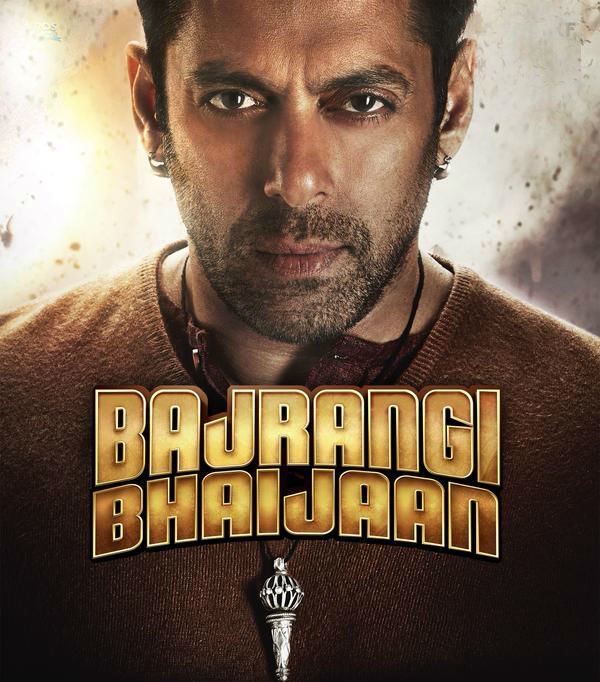
Was the sense of respect reciprocated?
It was! Because I didn't give in, I think he developed respect for me too. We both had opposing views but a consensus was eventually reached. We both have common issues that we both feel strongly about. For instance - secularism. We both feel that if the secular ethos of this country is destroyed, we'll be ruined. When I had these discussions with him, I realised that he has a certain depth in him and that made me even sure that he's the most apt person for Bajrangi as we were giving strength to each other by collaborating on a film where we had the same sensibilities.
Any hiccups during Bajrangi?
None at all! There was a lot of travel, lot of logistics to be taken care of. We had an extremely pleasant experience and it is the quickest film I have made.
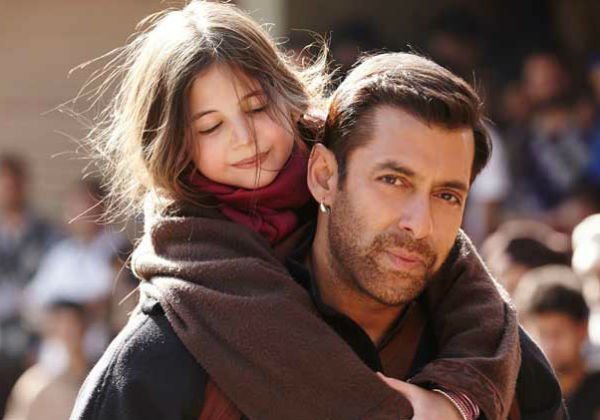
With Bajrangi Bhaaijan, are you taking a strong political stand against the extreme Right?
I cannot comment on that. But when we say politics, people start talking about party politics. Every film is political, whether it is inadvertently there or there by design. I can forgive a bad screenplay, shoddy acting but I find it difficult to forgive if you've got the politics in your film wrong.
By politics, what do you mean, specifically?
I mean the filmmaker's take on things, his worldview and how he addresses gender, society and everyday reality. So many times I find that so skewed and misguided, it just depresses me. And this comes from well-meaning people.
You chose Kareena Kapoor over your favourite Katrina Kaif. Deepika Padukone was also in the running for the role.
I think Kareena was the most apt for this role. She is the voice of sanity in all the chaos and suits the North Indian girl's part very well. Katrina and I both know that she isn't suitable for this role, so we didn't even have that conversation.
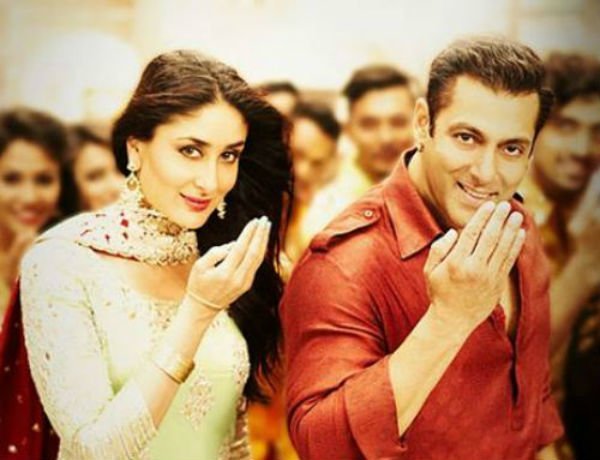
Did the changed relationship between Salman and Katrina affect your casting decisions?
Not at all. Neither is Salman like that, nor Katrina. Like I said, if she suited the part, I'd have cast her. Add to it, we just did Phantom together. How many films can we do!
I feel humour is the best way to address something serious as it is the most profound way to talk about any issue. Also, with humour you can get away with a lot while still conveying what you set out to. That one line between Salman and Nawaz: Bajrang Bali madat karenge na, to which Nawaz says, Pakistan mein bhi? That one dialogue has so, so many layers that you can interpret it in multiple ways.


It definitely veers towards the dark. Would you say then that Bajrangi's humour is similar to Kabul Express than any of your other films?
Absolutely! The great thing is that this time it is a much bigger scale in terms of production and there is a big star who guarantees a lot more visibility to my film. One challenge that I am facing with Bajrangi is that it is a very difficult film to promote in the traditional Bollywood way. I don't think any trailer can do justice to the film's story as it's a journey which will leave you emotionally overwhelmed.
When you use humour to address a relatively serious issue, do you also not stand the risk of mocking it?
Yes! There's an extremely thin line and you need to tread carefully. The challenge is how to not trivialise and ridicule the issue. It is more difficult to be able to express the point with humour. It is much easier to articulate it in a normal way. But then it can get preachy and boring, something that you can escape if you get the humour right.
Rajkumar Hirani has managed to do that really well...
It's an exceptional triumph. That man is a genius. Look at Lagey Raho Munnabhai. It drives home the message with such wit and humour; you are hooked as a viewer.
Take us through the process of writing a Salman Khan film.
Salman, or no Salman... writing is an exceptionally painful, lonely and at the same time, fulfilling process. It is frustrating and enjoying almost simultaneously. Sometimes you end up liking a scene that you wrote but two days later, you go like, what the hell were you thinking! I always try and get a co-writer at a certain stage and then we start bouncing off ideas to one another every two days. So we create a situation and then write how the scenes will be executed, separately. Then it is junked and deliberated upon as a new perspective is established. So in that sense, writing a film is an extremely collaborative process.

How strongly do you think your film stands if you take away Salman Khan's star power from it?
In Bajrangi, I have been very fortunate as I've been allowed to make a really sweet story and still had the opportunity to make it on the scale that it deserves. Add to it Salman Khan. He makes the film even bigger. Having said that, I think it is a fantastic story. But of course, nothing can beats what Salman brings on to the table. I was able to make the film only because Salman and I were finally on the same page.
You are implying that there was a tussle between the two of you during Ek Tha Tiger?
Yes, there was. In Ek Tha Tiger, there was a lot of give and take. It took a lot of time for us to see eye to eye, to see the film in the same way and to agree on things we had major differences on. I think that's the natural course in any collaboration. And I think it is important. I'd like discussion and debate as opposed to a brain-dead actor who doesn't have any interest at all.

But how difficult it is to argue with a superstar like Salman who is known to have his way?
He has his suggestions and I may not agree with him or have another point of view. In Ek Tha Tiger we went through that. But towards the end, we saw each other's perspective.
But obviously you might have felt that the same tussles could crop up again?
Yes, but Bajrangi happened because Salman and I ended up on the same page when Tiger wrapped up - there is no compulsion for him to work with me, neither am I obliged to work with him. We became great friends and the moment Bajrangi developed in my head, I went to him and he loved it. One thing I respect about Salman is that he never said anything because of the star that he is. It was always driven by the urge to make the film better. He could have thrown his superstardom at the director - a lot of stars do that. But he didn't--- and that made me respect him.

Was the sense of respect reciprocated?
It was! Because I didn't give in, I think he developed respect for me too. We both had opposing views but a consensus was eventually reached. We both have common issues that we both feel strongly about. For instance - secularism. We both feel that if the secular ethos of this country is destroyed, we'll be ruined. When I had these discussions with him, I realised that he has a certain depth in him and that made me even sure that he's the most apt person for Bajrangi as we were giving strength to each other by collaborating on a film where we had the same sensibilities.
Any hiccups during Bajrangi?
None at all! There was a lot of travel, lot of logistics to be taken care of. We had an extremely pleasant experience and it is the quickest film I have made.

With Bajrangi Bhaaijan, are you taking a strong political stand against the extreme Right?
I cannot comment on that. But when we say politics, people start talking about party politics. Every film is political, whether it is inadvertently there or there by design. I can forgive a bad screenplay, shoddy acting but I find it difficult to forgive if you've got the politics in your film wrong.
By politics, what do you mean, specifically?
I mean the filmmaker's take on things, his worldview and how he addresses gender, society and everyday reality. So many times I find that so skewed and misguided, it just depresses me. And this comes from well-meaning people.
You chose Kareena Kapoor over your favourite Katrina Kaif. Deepika Padukone was also in the running for the role.
I think Kareena was the most apt for this role. She is the voice of sanity in all the chaos and suits the North Indian girl's part very well. Katrina and I both know that she isn't suitable for this role, so we didn't even have that conversation.

Did the changed relationship between Salman and Katrina affect your casting decisions?
Not at all. Neither is Salman like that, nor Katrina. Like I said, if she suited the part, I'd have cast her. Add to it, we just did Phantom together. How many films can we do!
